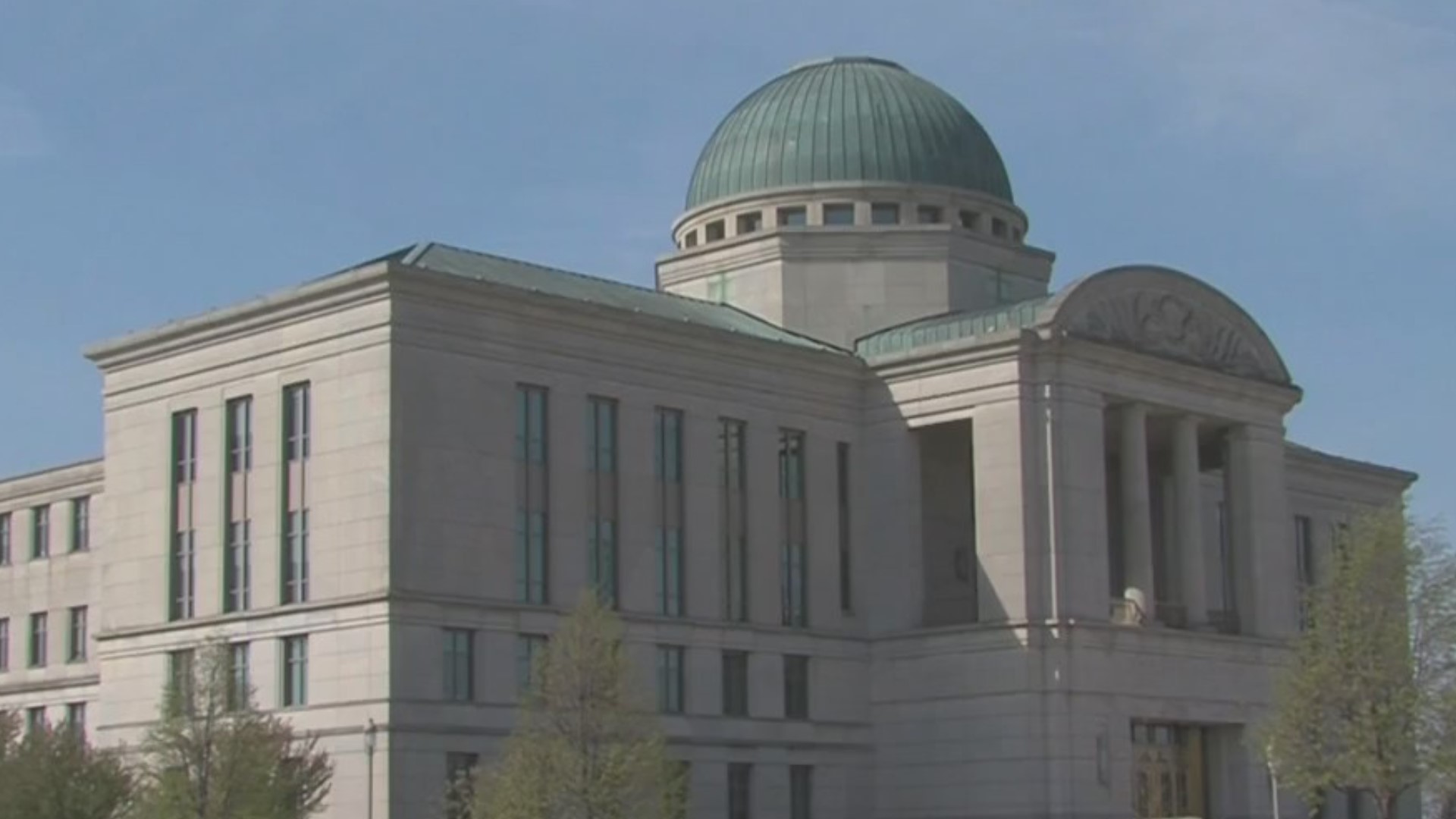DES MOINES, Iowa — Iowa's Supreme Court heard arguments Wednesday about abortion restrictions Gov. Kim Reynolds signed into law, and many conservative justices deciding the case have replaced predecessors who affirmed four years ago that the state constitution guarantees women the right to have abortions.
Abortion providers filed a lawsuit challenging the law passed by the Republican Legislature and signed by the GOP governor in June 2020 that required a 24-hour waiting period before a woman can get an abortion. A judge struck down the law in June 2021, citing the 2018 Iowa Supreme Court decision that declared abortion a fundamental right under the state constitution.
The judge also concluded that Republican legislative leaders violated a longstanding state law prohibiting passage of bills with more than one subject.
A central issue in the case is whether the court should consider reversing a decision made just four years ago. The legal concept of stare decisis, which means courts defer to previous rulings so they don't relitigate the same issues repeatedly, could allow the court to simply leave the 2018 ruling in effect.
Rita Bettis Austen, legal director of the ACLU of Iowa, argued nothing has changed that would prompt the court to reconsider the 2018 decision.
Justice Christopher McDonald noted the court recently reversed itself on opinions it found erroneous, saying “stare decisis has limited value in constitutional questions." He has previously indicated his willingness to overturn previous court decisions.
Assistant attorney general Sam Langholz asked the court to reverse the 2018 decision, reverse the district court judge's dismissal of the current case and send the case back for trial.
“Statutes are cloaked in presumptions of constitutionality. They’re passed by a coequal branch of the government and the state should have the opportunity to defend that new statue on the merits,” he said.
The case comes before the state's high court as Iowa Republicans, frustrated with repeated legal battle losses, have adopted a strategy of reshaping the courts to win. It's a trend seen in many states where issues such as abortion have been decided.
From January through May last year, at least 26 states introduced at least 93 bills that would politicize or undermine the independence of state courts, according to the Brennan Center for Justice in New York.
In 2019, Reynolds signed a law approved by Iowa Republican lawmakers that changed the selection process for judges, switching from a nonpartisan commission to one giving the governor majority control over naming commission members. The panel selects finalists for open positions on the Iowa Supreme Court and Court of Appeals, and the governor chooses judges from those options.
The court now has six Republican-appointed justices, including four named by Reynolds in the past four years due to retirements and the death of former Chief Justice Mark Cady in 2019. The only remaining Democratic appointee, Brent Appel, is the only justice who supported the 2018 opinion.
In that decision, the court struck down a law requiring a 72-hour waiting period for women seeking an abortion, ruling that restriction was unconstitutional and that “autonomy and dominion over one’s body go to the very heart of what it means to be free.”
The court’s 5-2 decision said the mandatory delay violated the Iowa Constitution because the restrictions on women weren’t “narrowly tailored to serve a compelling interest of the state.”
Sixty Iowa Republican legislators have asked the Iowa Supreme Court to reverse the decision and received permission from the court to allow their attorney to argue their position. They argue in court briefs that the decision was wrongly decided.
Christopher Schandevel, the legislators' lawyer, quoted U.S. Supreme Court Justice Brett Kavanaugh who recently said when the Constitution is silent on issues such as abortion, courts should remain neutral.
The court decision could be critical to the future of abortion rights in Iowa, where anti-abortion Republican lawmakers and the governor have made clear their intent to make the procedure difficult if not illegal in the state.
Abortion-rights groups fear that the U.S. Supreme Court could soon overturn or weakens federal abortion-rights guaranteed since the 1973 Roe v. Wade decision. If the federal abortion rights protections are reversed the decision falls to individual states. If the Iowa court overturns its own precedent and rejects the 2018 court decision, the Iowa Legislature would have broad authority to restrict abortion access in the state.

